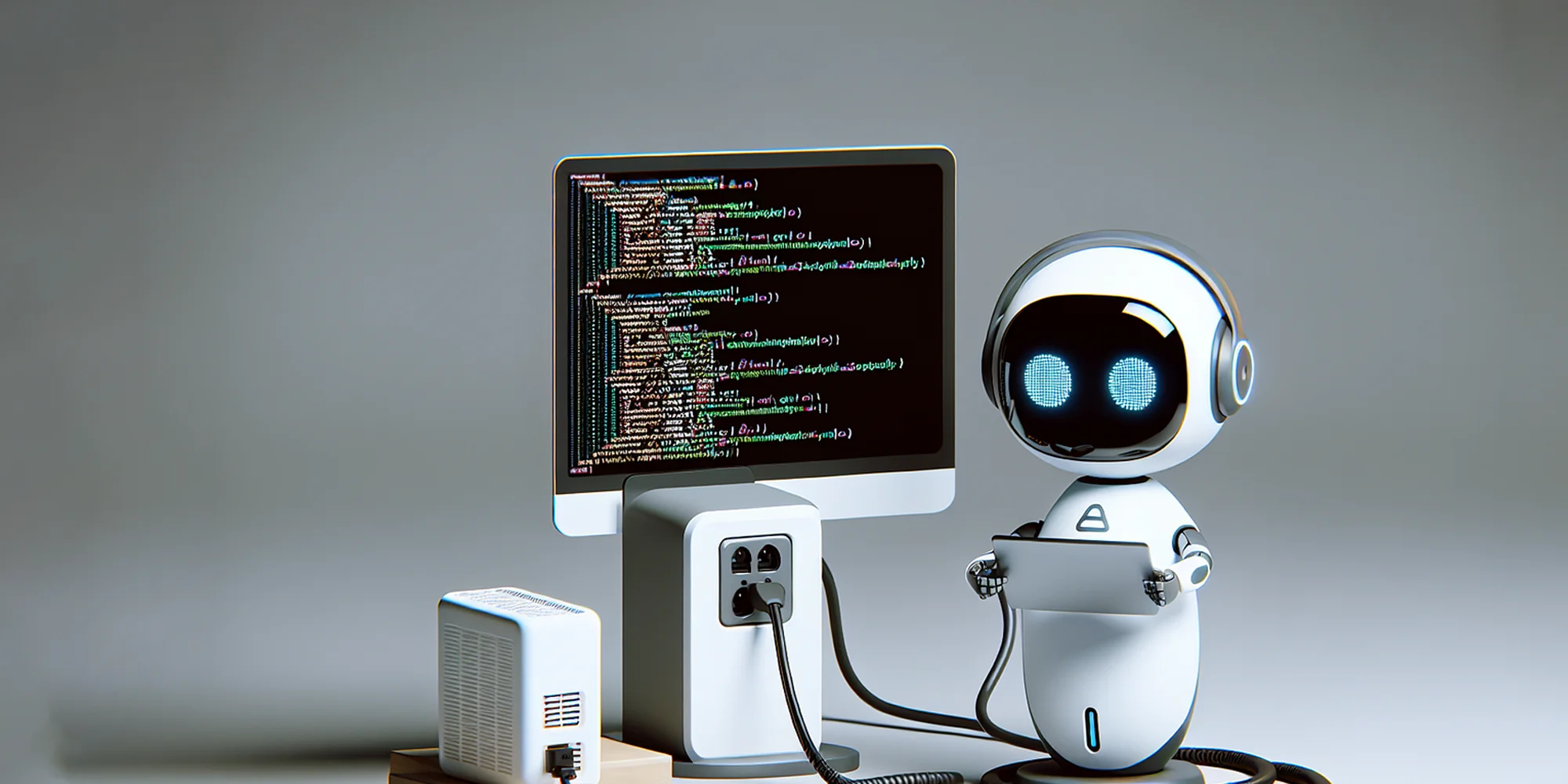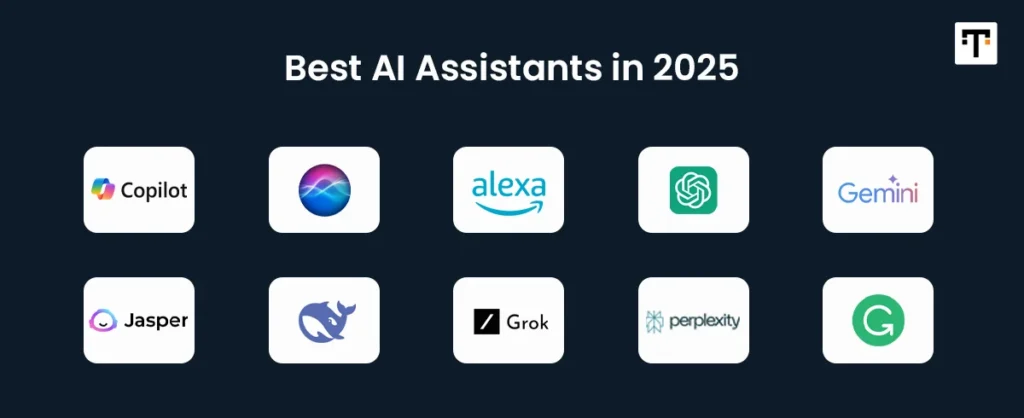Necessary Always Active
Necessary cookies are required to enable the basic features of this site, such as providing secure log-in or adjusting your consent preferences. These cookies do not store any personally identifiable data.
|
||||||
|
||||||
|
||||||
|

Imagine a virtual companion that listens, understands, and even anticipates your requirements—welcome to the age of AI assistants. These smart assistants use artificial intelligence, machine learning, and natural language processing to automate tasks, respond to queries, and offer customized experiences. From performing monotonous tasks to making decisions in real-time, AI assistants have progressed way beyond mere voice commands.
In 2025, these AI assistants are quicker, smarter, and well-integrated into our daily lives with the increasing use of digital devices. Major tech companies like Google, OpenAI , Microsoft and Amazon are developing AI systems which understand the thought processes of humans. They cater to individual user needs while changing the way humans and technology interact with each other.
In this blog we will talk about the top 10 AI assistants from 2025 along with their futuristic capabilities in the dynamic AI landscape.
AI assistants exist in different forms, each of which is intended to perform different functions depending on their intelligence level, functionality, and integration. Each of them is intended to improve efficiency, convenience, and automation in various aspects of work and life. Here are the main types:
These voice assistants are based on AI that uses speech recognition to interpret voice commands for executing tasks. They assist people in creating reminders, searching the internet, texting, and managing smart home devices. By connecting with other apps and services, they automate everyday tasks and make them more accessible, making it easier for people to use them hands-free.
These chatbots engage with users by text, mostly found on websites, apps, and messaging platforms. They assist in responding to customer inquiries, automating replies, and offering real-time support. They are utilized by companies to automate customer service, minimize wait time, and augment engagement by giving instant solutions with no human input.
These assistants are engineered to maximize workflow effectiveness and automate mundane tasks. They assist professionals in managing time, recording meeting minutes, creating documents, and even making smart suggestions. By minimizing administrative burdens, they enable staff to concentrate on more strategic and imaginative work.
These AI applications manage customer service interactions, providing speedy and precise answers to questions. They are able to work 24/7, answering frequent problems, executing orders, and even suggesting troubleshooting tips. Customer support is automated, and companies can enhance response times, increase user satisfaction, and lower operational expenses.
These AI-powered personal assistants are integrated with IoT devices to oversee home automation. They regulate lights, set temperatures, keep an eye on security systems, and control appliances with voice commands or mobile applications. They establish a personalized and comfortable living space by learning user habits and enhance energy efficiency.
The assistants have been created to deliver emotional support while being companions for users. These assistants conduct chats and acquire user tastes before modifying their responses to establish genuine dialogs. The platforms function for psychological support while offering entertainment purposes to maintain user connections by diminishing feelings of isolation and supporting therapeutic processes.
These AI tools help users to monitor expenses, determine budget and manage their finance in giving financial advice. They analyze the expenses patterns, provide real -time insights, and even automate savings. By simplifying financial management, they empower users to make financial decisions and plan for the future.

Advanced capabilities of AI assistants necessitate their use in personal needs and professional workplaces. Natural language processing (NLP) allows these systems to obtain information from voice and text commands for smooth user interaction. The system performs various administrative work which includes the automation of tasks for creating reminders and scheduling appointments together with email management and report development.
The system helps users obtain information while it generates news summaries and executes research tasks and delivers advice regarding products. These devices unify with Internet of Things devices that enable control over lighting systems as well as security operations and device functions.
AI assistants make business’s customer support more efficient through their ability to answer questions and provide help along with continuous availability. The system enhances productivity levels because it provides services such as meeting transcription and document drafting along with workflow optimization. Financial institutions use AI assistants to analyze spending activities and implement budget constraints and present cost-related performance data to users.
Healthcare programs utilize artificial intelligence through tools that display patient exercises data while managing medicine intake protocols and conducting medical diagnoses. AI tutors customize learning experiences by analyzing student-specific needs and creating personalized learning paths in educational settings.. AI technological progress enables smart assistants to become more intelligent, and they simplify work processes and enhance operational efficiency in all application domains.

AI assistants have become indispensable tools in 2025, enhancing productivity, creativity, and daily life with their advanced capabilities. Whether it’s automating tasks, assisting with content creation, or managing smart home devices, these AI-powered tools continue to evolve and redefine human-AI interaction. Here’s a look at the top AI assistants of 2025 and what makes them stand out.
Microsoft Copilot is an AI-powered assistant integrated into Office 365, helping users draft emails, create documents, analyze data, and automate repetitive tasks. It enhances workplace productivity by streamlining workflows and improving collaboration.
Apple’s voice assistant, Siri, continues to evolve with improved natural language understanding, better integration with Apple devices, and enhanced personalization. It helps users with hands-free commands, smart home control, and everyday tasks like messaging and navigation.
Alexa remains a leader in smart home automation, enabling voice-controlled interactions with various IoT devices. It provides news updates, entertainment recommendations, and shopping assistance while continuously improving conversational capabilities.
ChatGPT is a powerful AI assistant known for generating human-like responses, assisting with content creation, brainstorming ideas, coding, and answering queries. It is widely used for research, education, and business communication.
Gemini, Google’s AI assistant, offers advanced search capabilities, multimodal reasoning, and integration with Google’s ecosystem. It helps users with complex tasks like summarizing documents, language translation, and creative content generation.
Jasper is a leading AI writing assistant designed for marketers, content creators, and businesses. It specializes in generating high-quality blog posts, social media content, and ad copy with a focus on brand voice consistency.
DeepSeek is an emerging AI assistant known for its deep learning capabilities in research and problem-solving. It assists users in technical writing, scientific analysis, and data interpretation, making it valuable for academics and professionals.
Developed by xAI, Grok AI is an AI assistant designed for deep contextual understanding and real-time knowledge retrieval. It excels in generating insightful responses and engaging in meaningful conversations.
Perplexity AI functions as an advanced research assistant, providing precise, real-time search results with sources. It is widely used for fact-checking, in-depth analysis, and assisting users in gathering reliable information efficiently.
Grammarly remains a top AI-powered writing assistant, helping users improve grammar, clarity, and tone. With AI-driven suggestions, it enhances content quality for emails, reports, and creative writing.
AI assistants have come a long way from being mere task managers to being extremely smart tools that boost productivity, creativity, and daily life. In 2025, they continue to redefine the way we engage with technology, making things more efficient and intuitive. Whether it is Microsoft Copilot optimizing workplace functions, Google Gemini improving search and communication, or OpenAI’s ChatGPT transforming content creation, these AI assistants serve different purposes across industries.
As AI technology continues to evolve, these assistants will grow even more intelligent, providing greater personalization, enhanced accuracy, and improved contextual awareness. From controlling smart homes to helping businesses and aiding education, AI assistants are defining the future of human-AI interaction. Selecting the right assistant is a matter of personal requirement, but one thing is certain—AI assistants are no longer futuristic ideas; they are key drivers of innovation in 2025 and beyond.
Sign up to receive our newsletter featuring the latest tech trends, in-depth articles, and exclusive insights. Stay ahead of the curve!